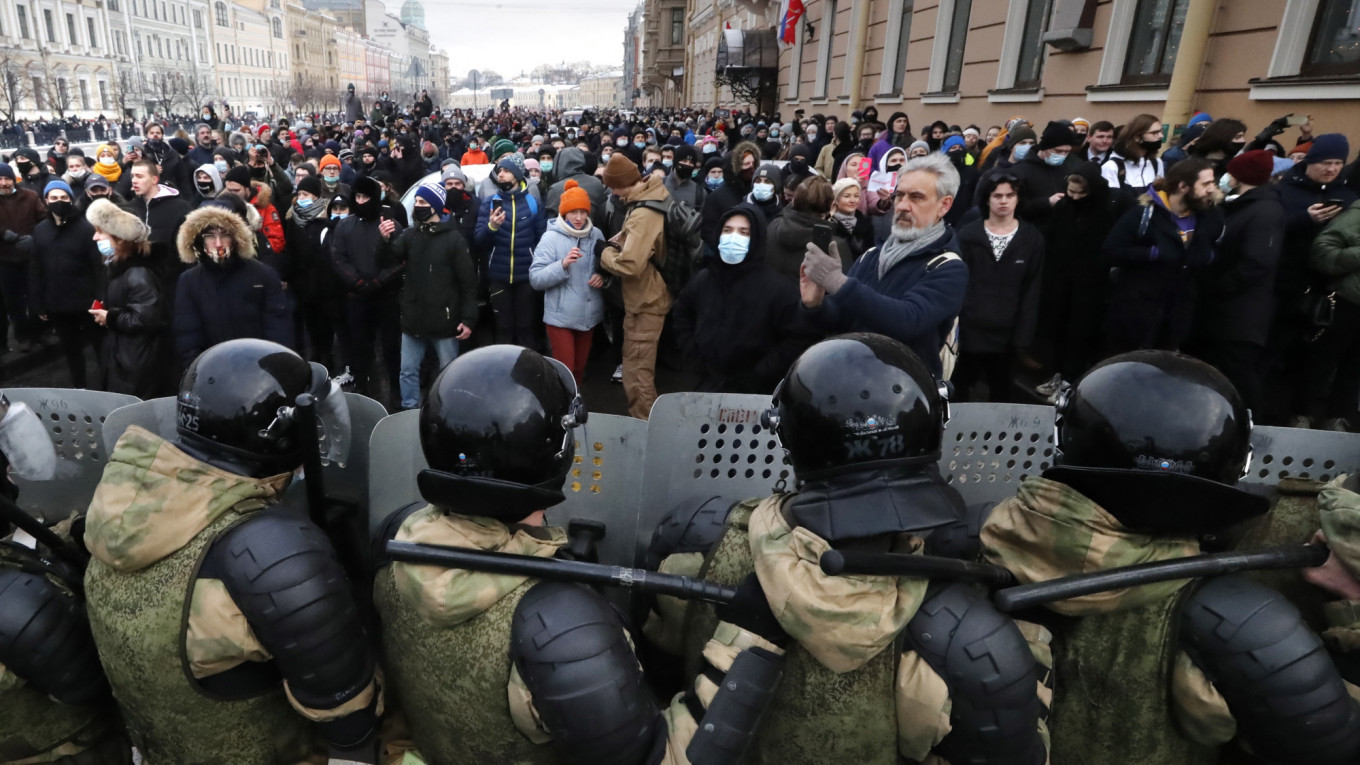
Alexei Navalny’s allies announced new protests in support of the jailed Kremlin critic Tuesday, holding off on setting a date until their online campaign reaches half a million potential participants.
The team launched a website to gather signatures of supporters willing to take to the streets again after some of the largest rallies in Russia’s recent history swept the country earlier this year. More than 10,000 were detained at those demonstrations, with many alleging police brutality and other violations.
“We’re not setting a specific [protest] date right now. The first step of our campaign is to tell the whole country about the rally,” said top Navalny aide Leonid Volkov.
“We must all work together to raise awareness and prepare, then set the date when the number of participants reaches at least half a million people,” Volkov said in a video announcing the public campaign.
The team said it sought to simultaneously overcome public inaction and crackdowns by the authorities on sparsely attended demonstrations.
“We know perfectly well if 1,000 people come out, they all get arrested; 10,000 are dispersed. With 100,000, anti-riot police behave themselves,” said key Navalny investigator Maria Pevchikh.
Navalny’s team hinted at the approximate timeline of the protests, saying that the free.navalny.com signature-collection platform “will be our main website for the next few months.”
The website gathered fewer than 10,000 out of the needed 500,000 signatures in the first hour of its launch. Users reported experiencing difficulties logging in, with speculation of the cause ranging from server overloads to DDoS attacks.
A Russian military court on Monday rejected Navalny’s complaint over the authorities’ refusal to investigate his August 2020 poisoning with the Soviet-era nerve agent Novichok.
Navalny, 44, was sentenced to two and a half years in a penal colony last month for violating parole while recovering from the poisoning in Germany.
Navalny accused Russia’s security agencies of attempting to assassinate him at the orders of President Vladimir Putin, a claim the Kremlin has regularly denied. The United States and the European Union have levied sanctions against Russian officials and entities in response to Navalny’s poisoning and imprisonment.